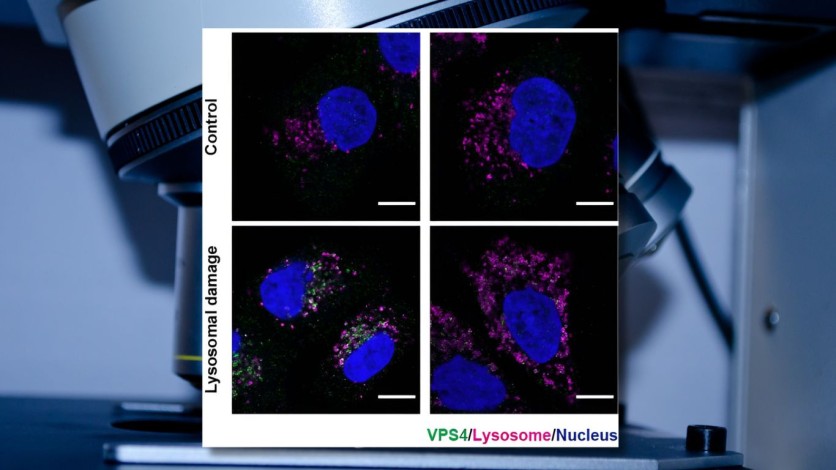A recent study published in EMBO Reports by researchers from Osaka University and Nara Medical University sheds light on a fundamental process within cells-microautophagy-that plays a crucial role in repairing damaged lysosomes, offering insights into how cells defy the aging process.

Repairing Damaged Lysosomes
Lysosomes, often regarded as the cellular waste disposal system, are pivotal in breaking down and recycling cellular components.
However, when these lysosomes incur damage, it poses a challenge to cellular health. Enter microautophagy, a cellular mechanism that acts as a repair system specifically targeting these impaired lysosomes.
The Groundbreaking Study
We learn from this report shared by Phys.org that the study zeroes in on two key players: STK38 and GABARAPs.
STK38 emerges as a primary orchestrator, recruiting VPS4 to damaged lysosomes facilitating the disassembly of dysfunctional components. On the other hand, GABARAPs play a critical role in initiating the assembly of crucial repair machinery by interacting with ALIX.
A Closer Look
The significance of this discovery lies not only in identifying these molecular protagonists but also in understanding their impact.
To test their role, researchers manipulated STK38 and GABARAPs levels in both human cells and the model organism C. elegans. The results were striking: depleted levels led to accelerated cellular aging and shortened lifespans in the test subjects.
Now for the science without the jargon: damaged lysosomes get a makeover via microautophagy, thanks to STK38 and GABARAPs leading the charge.
What's Next?
Understanding the implications of this cellular repair process goes beyond mere academic curiosity. It delves into potential therapeutic interventions for age-related diseases.
Unraveling the secrets of how cells combat aging could offer pathways to prolonging healthy cellular function and, consequently, overall lifespan.
In essence, the study underscores the critical importance of microautophagy in maintaining cellular health by repairing damaged lysosomes. STK38 and GABARAPs emerge as pivotal players in this intricate repair process as potential targets for future therapeutic interventions.
The implications of these findings offer a glimpse into a future where age-related diseases might be tackled at their very source-cellular degradation.
It is not just about understanding cellular repair mechanisms; it is about harnessing this knowledge to potentially enhance human health and longevity.
In Other News
The Centre for Novostics in Hong Kong is reportedly developing a low-cost version of the 'Galleri test,' a universal cancer blood test with high accuracy.
According to Professor K.C Allen Chan of the Center of Novastics during the Hong Kong Laureate Forum 2023, the version is only worth $50. According to Professor Chan, "We are expecting a rapid drop in the cost because of the improvement in the technology."
Stay posted here at Tech Times.
Related Article : Chinese Scientists Discover Vitamin C May Hold the Key to Anti-Aging

ⓒ 2025 TECHTIMES.com All rights reserved. Do not reproduce without permission.




